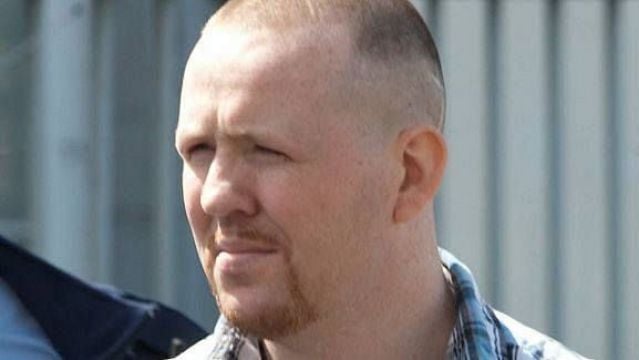Evidence that "fell between the cracks" could have called into question the credibility of witnesses who helped to jail notorious Limerick gangster John Dundon for the murder of innocent rugby player Shane Geoghegan, a lawyer has told the Court of Appeal.
Dominic McGinn SC argued before the three-judge court on Monday that it should hear fresh evidence of a phone conversation between witnesses Lisa Collins and Christopher McCarthy that did not emerge at Dundon's trial in 2013.
Mr McGinn said that during the conversation, which was recorded by the Irish Prison Service while Mr McCarthy was in jail, Ms Collins and Mr McCarthy discussed "how long was long enough" for Dundon to be imprisoned.
Counsel said there was a reference to Dundon receiving 10 years for a particular offence but that "wouldn't be sufficient".
Mr McGinn said the conversation suggested that Ms Collins and Mr McCarthy had a motive to ensure that Dundon was convicted of an offence carrying a greater penalty, such as murder.
If Dundon's legal team at the time had known about the conversation, Mr McGinn said they undoubtedly would have used it to undermine the credibility of Mr McCarthy, Lisa Collins and her sister April Collins.
Those three gave evidence detailing how John Dundon ordered and organised the hit that resulted in Mr Geoghegan being shot in a case of mistaken identity. The Special Criminal Court, where Dundon was tried in 2013, found that their evidence was credible.
Mr McGinn said Dundon's original legal team was aware of the phone call but the evidence later "fell through the cracks" after Dundon sacked his lawyers on the day his trial was due to begin. His second legal team, Mr McGinn said, had to deal with a huge amount of disclosure in a short amount of time.
Mr McGinn said it was "clearly relevant that Ms Collins and Mr McCarthy had a conversation about how long was long enough to keep themselves safe from the Dundons". He said an ongoing issue in the trial was the credibility of the witnesses and their motivation for giving evidence.
The absence of the phone call evidence is enough to raise a concern about the fairness of Dundon's trial, Mr McGinn said.
Risk of harm
Sean Guerin SC, for the Director of Public Prosecutions (DPP), said Dundon is not entitled to rely on a disadvantage caused by his "cynical and improper" decision to sack his lawyers on the first day of his trial.
He reminded the court that Dundon had sought an adjournment in his trial but was refused after a garda gave evidence that any delay would result in an increased risk of harm to April Collins.
Ms Collins had already been threatened by Dundon, resulting in him receiving a prison sentence.
Mr Guerin said there were 22 days between Dundon hiring his second team of lawyers and the first of the three witnesses giving evidence and therefore there was time to consider all the material.
Mr Guerin also submitted that the phone call supported the prosecution case, not the defence case, in that it showed that the witnesses were in fear of John Dundon.
He also pointed out that the Special Criminal Court had treated the evidence of the three witnesses with extreme caution but found there was "an abundance of other evidence" to support their accounts.
Mr Justice John Edwards, sitting with Mr Justice Patrick McCarthy and Ms Justice Isobel Kennedy, reserved judgement in the application to adduce fresh evidence as part of Dundon's appeal against his conviction.
Dundon (41), formerly of Hyde Road in Limerick, was convicted at the Special Criminal Court in 2013 of ordering the hit that resulted in the death of 28-year-old Mr Geoghegan near the victim's home at Clonmore, Kilteragh, Dooradoyle on November 9th, 2008. He is serving a life sentence.
April Collins told the court that she heard John Dundon order gunman Barry Doyle to kill a gang rival less than 48 hours before Mr Geoghegan’s death.
Mr Geoghegan played rugby for Garryowen in Limerick and had been watching an Ireland international game at a friend's house before heading home shortly before 1am. He had just texted his girlfriend Jenna Barry to say he was on his way when Ms Barry heard shots fired outside. Mr Geoghegan was shot five times with a Glock semi-automatic pistol. The fatal shot was to the back of the head.
It was the State’s case that Mr Geoghegan was the unintended victim of a shooting that was meant for another man and was ordered by John Dundon.
Doyle (38), last of Portland Row in Dublin 1, was found guilty of murdering Mr Geoghegan by a jury at the Central Criminal Court and was given the mandatory life sentence by Mr Justice Garrett Sheehan on February 16th, 2012







